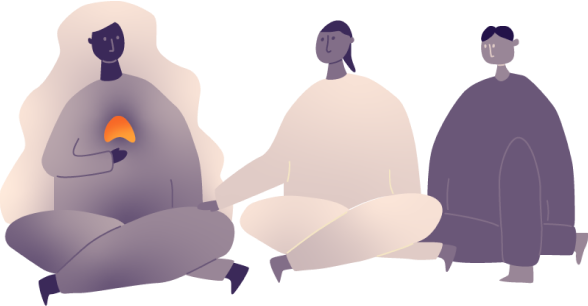Awhi is still in development, we'd love your feedback and suggestions. Let us know.
How do I help my FASD child at school?
Foetal alcohol spectrum disorder (FASD) can make mainstream schooling can be challenging.
Foetal alcohol spectrum disorder (FASD) is a diagnostic term for a neurodevelopmental disorder caused by exposure to alcohol before birth.
Dubbed the invisible disorder, FASD is not widely understood in the New Zealand education sector, or even amongst the general public.
FASD causes significant damage to a child’s brain that can affect their ability to learn, regulate their behaviour and understand consequences. Yet often, without an official diagnosis, children are presumed to be the same as their neurotypical peers and are punished for behaviours that are beyond their control.
Even when you do have an official diagnosis of FASD, teachers are not always up-to-speed with appropriate learning strategies and support that will allow children to thrive and develop to the best of their abilities.
It falls to parents, therefore, to be their child’s FASD advocate from the moment they set foot in school, or from when they receive a diagnosis.
In Aotearoa, an excellent website has been set up to support parents of children with FASD. FASD-CAN (Care Action Network) has a lot of resources on how to navigate your child’s schooling journey.
Hey Teacher - An A4 downloadable pdf providing FASD facts, tips and strategies for your child’s teacher.
Think Ahead – How to Advocate for your Child at School, also downloadable.
About your child – printable sheet for teachers.
These resources are a great starting point, but it will probably pay to be the squeaky wheel that gets your child’s needs met. Make sure there is an ongoing dialogue with your child’s teachers, teacher aides and SENCO teacher.
Here are some key concepts that you, as parents, can reinforce:
- My child struggles to learn from consequences. This means that punishments such as the removal of privileges and reprimands will not change their behaviour.
- Teaching strategies that work for neurotypical children will not work for my child. My child will need an individual education plan with my input on their strengths, challenges and interests.
- Learning for a child with FASD is inconsistent – what my child knows one day, they will not know the next. This is not deliberate, it is simply beyond their control and caused by damage to their brain.
- Please don’t label my child as wilful, defiant, or naughty. Going to school every day is a challenge for them and they are doing their best in an environment that often makes them anxious and frightened.
- Children with FASD sometimes have a ‘cloak of competence’, this means they appear to have a higher level of comprehension than they possess, particularly with language.
- Teachers need to readjust their expectations of what my child can learn. My child will learn best with repetition, structure, fun and kindness.
- Visual reinforcements often work well with children with FASD, along with games, puzzles and technology. Especially when they key into my child’s special interests.
- My child is easily overwhelmed. It will help if you break up study time with physical activity. Also allow them to go to a designated space to de-stress.
- Children with FASD can struggle to understand abstract concepts. Use simple concrete language, and when giving instructions, only give one instruction at a time.
Sometimes, despite your best efforts, your child will come to grief within the schooling system and will face the possibility of being ‘stood down’ or excluded from school. Once again, FASD-CAN has excellent advice on this topic, and provides guidance on how you can challenge a school’s decision to exclude your child.
It may also be that your child’s current school is no longer suitable to meet their learning needs. You may choose to homeschool them or place them in a different school. But children with disabilities should never have to go through the punitive experience of being excluded.
We all have a role in promoting empathy and understanding for the disorder as much as it is in our power to do. The more honest and open you are about the condition with everyone who is in your child’s life, the more support they are likely to receive.
As one FASD researcher reminds us, we should never lose sight of the ‘courage, fortitude and optimism required from such a child (with FASD) each morning as they get ready for school. They know the day will be confusing, that their experience of it will include gaps and sensory overload . . . that they will be told off for things beyond their control . . .And yet they get themselves ready to the best of their ability and set out to live another day in their bewildering, overwhelming and often frightening reality’ (C. Carel:2016).
For more on FASD, see our other panui on Awhi Nga Matua. You might also like to check out the resources below which include useful websites, online interactive games, and books and articles from the IHC Library, many of which can be read online. Or contact the IHC library directly to have a chat about what you need on 0800 442 442 or email: librarian@ihc.org.nz.
Resources
Educating children and young people with fetal alcohol spectrum disorders :
Educating children and young people with...
"The range of learning difficulties associated with children who...
"The range of learning...
Developing inclusive practice for young children with fetal alcohol spectrum disorders :
Developing inclusive practice for young...
"Written by one of the UK’s top experts in the field, this...
"Written by one of the UK’s...
Foetal alcohol spectrum disorders :
Foetal alcohol spectrum disorders :
"This unique book has been written for those parenting children /...
"This unique book has been...
Fetal alcohol spectrum disorders :
Fetal alcohol spectrum disorders :
"Fetal alcohol spectrum disorders (FASDs) have emerged as a major...
"Fetal alcohol spectrum...
Understanding fetal alcohol spectrum disorder :
Understanding fetal alcohol spectrum...
"This is the essential guide to FASD - the most common non-genetic...
"This is the essential...
Understanding fetal alcohol spectrum disorder :
Understanding fetal alcohol spectrum...
"This is the essential guide to FASD - the most common non-genetic...
"This is the essential...
The best I can be: living with fetal alcohol syndrome/effects
The best I can be: living with fetal...
Tells the story of a teenage girl who has fetal alcohol syndrome....
Tells the story of a...
Our FAScinating journey :
Our FAScinating journey :
"Our FAScinating Journey, is an extremely valuable source of...
"Our FAScinating Journey,...
Trying differently rather than harder :
Trying differently rather than harder :
"This book provides a readable, narrative discussion of the...
"This book provides a...
Making sense of the madness :
Making sense of the madness :
Jeff thought he knew all about FASD until he started parenting a...
Jeff thought he knew all...
Fetal alcohol syndrome :
Fetal alcohol syndrome :
"Based on academic research, tells the stories of eight New Zealand...
"Based on academic...
Explained by brain :
Explained by brain :
"Dr Vanessa Spiller is a clinical psychologist and the parent of a...
"Dr Vanessa Spiller is a...
Fetal alcohol syndrome :
Fetal alcohol syndrome :
In 1973, psychologist Ann Streissguth was shocked by the lack of...
In 1973, psychologist Ann...
"It's ignorant stereotypes": Key stakeholder perspectives on stereotypes associated with fetal alcohol spectrum disorder, alcohol, and pregnancy
"It's ignorant stereotypes": Key...
People with fetal alcohol spectrum disorder (FASD) and women who...
People with fetal alcohol...
A qualitative evaluation of caregivers' experiences, understanding and outcomes following diagnosis of FASD
A qualitative evaluation of caregivers'...
Points out that the effects of prenatal exposure to alcohol are...
Points out that the effects...
Adaptation in families raising children with fetal alcohol spectrum disorder.
Adaptation in families raising children...
Notes that there is limited research investigating the lived...
Notes that there is limited...
Adaptation in families raising children with fetal alcohol spectrum disorder :
Adaptation in families raising children...
Identifies and explores unique stressors that hinder family...
Identifies and explores...
Self-care in caregivers of children with FASD: How do caregivers care for themselves, and what are the benefits and obstacles for doing so?
Self-care in caregivers of children with...
Background Caregivers of children with fetal alcohol spectrum...
Background Caregivers of...
The Strengths and Positive Influences of Children With Fetal Alcohol Spectrum Disorders
The Strengths and Positive Influences of...
People with disabilities have not been adequately represented...
People with disabilities...
Hidden needs :
Hidden needs :
Notes that there is little or no specific provision for children...
Notes that there is little...
Feasibility study of a family-focused intervention to improve outcomes for children with FASD
Feasibility study of a family-focused...
Growing evidence shows that children with fetal alcohol spectrum...
Growing evidence shows that...
Caregiver and family quality of life for children with fetal alcohol spectrum disorder
Caregiver and family quality of life for...
The current study provides increased understanding regarding...
The current study provides...
Raising a child with foetal alcohol syndrome :
Raising a child with foetal alcohol...
Observes that learning of a child's disability can be a difficult...
Observes that learning of a...
My Perfect Family: The Cookie Project
My Perfect Family: The Cookie Project
In 2012, Hamilton couple Graeme and Chris adopted their foster...
In 2012, Hamilton couple...
Crips in Cars: Willie & Darya
Crips in Cars: Willie & Darya
Crips in Cars: The social experiment that celebrates differences....
Crips in Cars: The social...
Disordered: FASD in New Zealand, the neurodisability caused by alcohol
Disordered: FASD in New Zealand, the...
The number of people in New Zealand with Fetal Alcohol Spectrum...
The number of people in New...
What is FASD?
What is FASD?
To improve the educational success of learners with Fetal Alcohol...
To improve the educational...
My Brain, Me and FASD Interactive Comic
My Brain, Me and FASD Interactive Comic
The all new, interactive My Brain, Me and FASD is here! Have some...
The all new, interactive My...
Fetal Alcohol Spectrum Disorder - Care Action Network (CAN)
Fetal Alcohol Spectrum Disorder - Care...
Providing support services to families and individuals affected by...
Providing support services...
FASD Hub Australia
FASD Hub Australia
Australia's FASD hub for health professionals, teachers, justice...
Australia's FASD hub for...
Me and my FASD
Me and my FASD
This website is for young people with FASD. It has information...
This website is for young...
Having a disability /
Having a disability /
"An inclusive and accessible picture book for children that...
"An inclusive and...
Fetal Alcohol Spectrum Disorder
Fetal Alcohol Spectrum Disorder
Being an adolescent male can be hard. But add to that an invisible...
Being an adolescent male...
Dan Dubovsky - Common Strengths of Students with FASD
Dan Dubovsky - Common Strengths of...
Dan Dubovsky talks about the importance of looking for and...
Dan Dubovsky talks about...
Fetal alcohol spectrum disorder
Fetal alcohol spectrum disorder
"An estimated 40,000 children are born with a Fetal Alcohol...
"An estimated 40,000...
Fidget! /
Fidget! /
"Strawberry and Cracker are twins with Fetal Alcohol Syndrome who...
"Strawberry and Cracker are...

Resources for kids
Oli and the pink bicycle :
Oli and the pink bicycle :
"It's Oli's seventh birthday - the first one since her new mamma...
"It's Oli's seventh...
Being you is enough :
Being you is enough :
What are the most important things a kid should know? It's okay to...
What are the most important...
Fetal alcohol spectrum disorder
Fetal alcohol spectrum disorder
"An estimated 40,000 children are born with a Fetal Alcohol...
"An estimated 40,000...
The Way I am is Different :
The Way I am is Different :
"In this children's book, a boy with Fetal Alcohol Spectrum...
"In this children's book, a...
Fidget! /
Fidget! /
"Strawberry and Cracker are twins with Fetal Alcohol Syndrome who...
"Strawberry and Cracker are...
The twins learn of their disorder /
The twins learn of their disorder /
"The Twins Learn of Their Disorder is one in the Strawberry &...
"The Twins Learn of Their...
The Twins' Sensory Smarts /
The Twins' Sensory Smarts /
"Strawberry & Cracker are twins with Fetal Alcohol Syndrome (FAS)...
"Strawberry & Cracker are...
Having a disability /
Having a disability /
"An inclusive and accessible picture book for children that...
"An inclusive and...
.jpg&w=128&q=75)
Meryl Richards
I’m Meryl Richards. What a pleasure it’s been to join the Awhi team. I get to spend my days researching information that supports me as a parent, and sometimes challenges me to rethink what I thought I knew. My hope is that it will be useful to you too. I live in Kapiti with my partner and two teenage boys, and spend as much time as possible in the surrounding bush and at the beach.
Was this resource helpful to you?


The Awhi Ngā Mātua team would like to thank Takai, the IHC Foundation and the Dines Family Charitable Trust for their generous contributions to our work. A huge thank you also to the IHC Programmes team, in particular the IHC Library which has worked so hard to make their remarkable collection available to us.




.jpg&w=3840&q=75)




